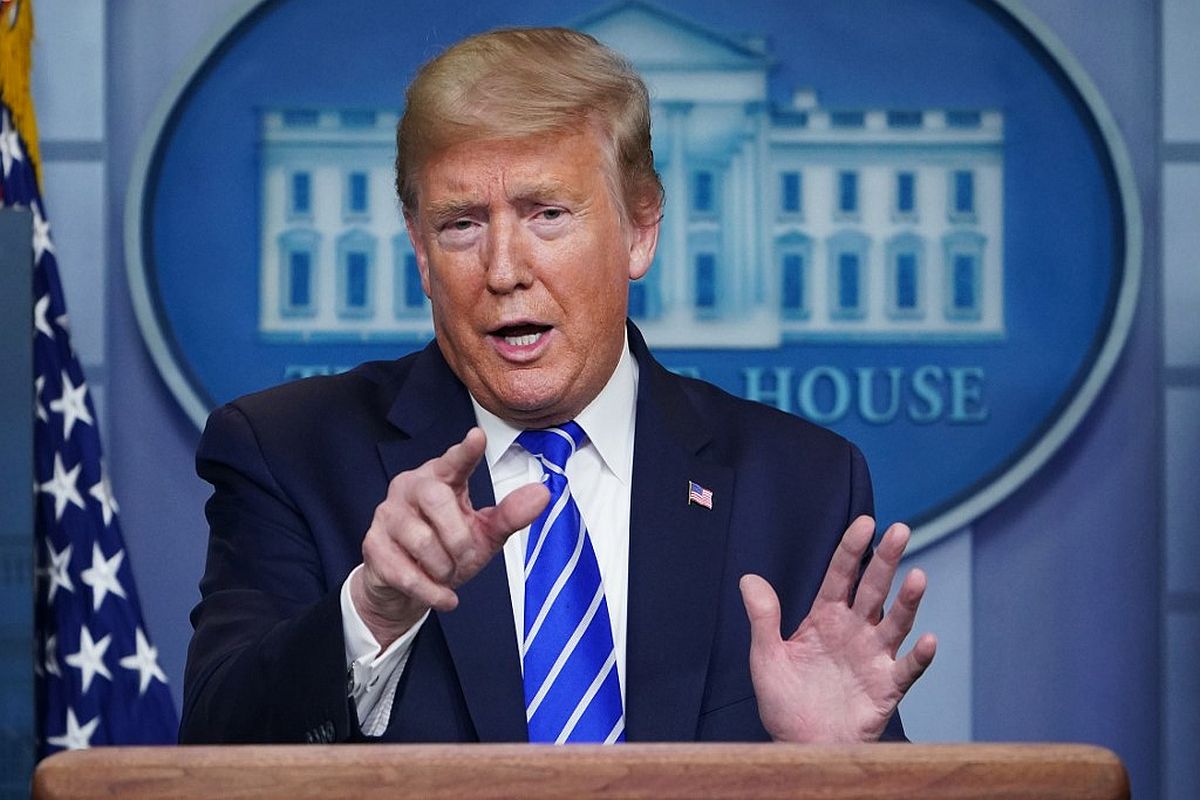Very recently, an impeachment motion was moved in the American Congress in order to remove Donald Trump, the President. A similar provision has been inserted in our Constitution for the removal of the President.
Though none of our Presidents has ever been impeached, it exists as a preventive measure. Of course, the President is constitutionally the Head of the State. As Art. 53(1) states, ‘The executive power of the Union shall be vested in the President’.
In addition, some legislative, financial, semi-judicial and emergency powers of enormous importance have been vested in him by the Constitution. As such, he is legally the most important functionary in our political system.
But, the makers of the Constitution were practical enough to realize that man, however dignified, was subject to some essential human frailties. So, they thought that the powers vested in the Presidential office might be abused by an ambitious incumbent and that it would, in such circumstances, bring about a Constitutional crisis.
This is why, Art. 61 has been inserted for the impeachment of the President in such a situation. It is interesting to note that Sir BN Rau, the Constitutional Adviser, did not include in his ‘Memorandum’ of May 1947, any provision for such impeachment. The Union Constitution Committee, however, inserted in July 4, a provision of Presidential impeachment for ‘violation of the Constitution’. It also put forward a particular procedure which was, thereafter, modified by the Constitutional Adviser and was duly submitted to the Assembly.
The Drafting Committee, of course, added one more condition that no such charge could be considered by Parliament unless it was moved by not less than one-fourth the members of either House.
The Assembly experienced a very interesting deliberation when the matter came up for consideration on its floor. Shankar Rao Deo proposed that no such motion could be initiated and considered unless it was moved by one-fourth of the members. However, BM Gupta’s proposal was that a motion of impeachment could be considered if it was initiated with fourteen days’ notice. Both of these proposals were considered by the Assembly and appreciated by Dr Ambedkar, the Chairman. Kazi Karimuddin’s motion of amendment was, however, of different type.
He proposed that when either House would meet to consider the motion of impeachment, the Chief Justice of India should preside over the sitting. He put forward two reasons. First, both the Speaker and the Chairman might be politically biased and, hence, the President might be denied necessary justice and fair play.
Secondly, the allegation would involve a mixed question of law and fact – but most of the members would be lacking in legal training and, eventually, fail to deliver correct judgment. But Dr Ambedkar, did not accept the amendment. He observed that he had no quarrel with the object behind the aforesaid proposal – but such matters could more appropriately be left for the Houses to provide in their ‘rules of procedure.’ Karimuddin, however, pointed out that the phrase ‘violation of the Constitution’ was an ambiguous one and, so, it should be substituted by the terms ‘treason, bribery or other high crimes and misdemeanours.’
But Dr Ambedkar rightly claimed that the aforesaid phrase was wide enough to include these offences and, eventually, the amendment was negatived. As a matter of fact, the problem was dealt with in every detail and it underwent careful consideration. In the process, the suggestions of even some eminent persons were negatived. For example, KM Panikkar, a famous historian, recommended that the President should not be liable to removal during the period of office. But, for obvious reasons, his suggestion did not prevail upon the members. Prof. KT Shah, another noted member, infructuously tried to influence the members in this matter. He suggested that, as in America, the Lower House would initiate the charge and the Upper House should be empowered to take the final decision.
But the Constituent Assembly did not accept it and it expressly granted the two Houses co-equal power in this matter. Thus, Art. 61 was adopted in the Constitution with some amendments proposed by the Constitutional adviser and moved by Dr Ambedkar. Art. 61 of the Constitution deals with the procedure of impeachment of the President. It lays down that when a President is to be impeached the charge shall be preferred by either House of Parliament.
But the charge shall not be preferred unless – 1. the proposal is contained in a resolution which has been moved after at least fourteen days’ notice in writing signed by not less than one-fourth of the total numbers of members of the House; 2. such resolution has been passed by a majority of not less than two-thirds of the total membership of the House.
When the charge has been so preferred by either House, the other House shall investigate or cause the charge to be investigated and the President shall have the right to appear or to be represented at such investigation. If, as a result of the investigation, a resolution is passed by a majority of not less than two-thirds of the total membership of the House by which the charge was investigated or caused to be investigated, declaring that the charge has been sustained, such resolution shall have the effect of removing the President from his office as from the date on which the resolution is so passed.
The scheme has, thus, some significant aspects. First, the President can be impeached for only ‘violation of the Constitution.’ Secondly, our Parliament is the sole judge in this matter. The courts have no say on this issue, nor does the Constitution provide any guideline for the Parliament to determine the matter.
Thirdly, though the impeachment is practically an American device, the makers have not blindly followed the extraneous method. While Art. II, Sec. 4 of the American Constitution provides for impeachment for the President, Vice-President and all Civil Officers, our Constitution has rather restricted its application to the President alone. Moreover, in America, the Lower House initiates the charge and the Senate, the Upper House, passes the final verdict. But here in India, both the Houses have, in this matter, similar authority.
But the most significant difference is that in America, the Chief Justice presides over the Senate proceedings when it considers the impeachment motion. But our Constitution has denied the Chief Justice such authority.
Thus, the Indian system has left a wide opportunity for political considerations to play their part. Interestingly, the makers of the Constitution thought that the fear of impeachment would compel the President to abide by the ministerial advice. Accordingly, it is often believed that Art. 61, serves to act as the ‘Sword of Damocles’ for an ambitious President. But it is highly doubtful whether this provision can in reality have a deterrent effect upon an ambitious President.
The reasons are, however, many and varied. First, the makers expected that the President would act as a nominal Head, but legally speaking, they did not insert any binding provision to that effect. Art. 74(1) only stipulated that there shall be a cabinet to ‘aid and advise’ the President. Of course, the 42nd and 44th Amendments of the Constitution have brought about a significant change in the wordings of Art. 74(1) and, consequently, the President is now almost legally bound to act upon the cabinet advise. In other words, now the President is Constitutionally liable to impeachment if he refuses to fall in with the ministerial view. Art. 74 (1), as re-written, seeks to make the President a ‘rubber-stamp’ in the hands of the cabinet. If he acts independently, the conflict with the cabinet would perhaps be brought before Parliament and the President might have to face an impeachment.
But it seems that even after these amendments, the basic fact remains almost unchanged and, hence, it is highly unlikely that the Parliament would be able to bring him to book. First, the President himself can prevent the move of impeachment by his legislative power. It is the President who alone can under Art. 85(1) common the legislature and he cannot be compelled to summon it more than twice a year.
When Parliament is bent upon taking a step to oust the President, he may refuse to summon it. If it is already in session, he may prorogue it and may, even dissolve the Lower House by Art. 85(1)(b).
The ensuing mid-term poll may change the entire political condition by sending the President’s favourites with a safe majority. In this case, the proposal of impeachment would be dropped altogether. Secondly, it is very difficult to have 2/3rds majority in each House against the President.
A successful impeachment requires the support of 2/3rds majority, and not a simple one. If, in any House, the numerical requirement is not satisfied, the motion would be lost. In fact, the President is the highest dignitary in the State and it can reasonably be hoped that he will have some effective influence. Moreover, unless he is backed by a large section of Parliamentarians in either House, no sensible President would venture to flout ministerial advice.
In such case, impeachment would remain a mere theoretical mechanism. This is why Dr KV Rao calls it ‘a cumbersome and ineffective’ measure.
As a matter of fact, the chance of successfu l impeachment is becoming increasingly bleak in the background of the multiparty system where the cabinet has little hope to be backed by 2/3rds majority in both the Houses. Thirdly, impeachment is an ineffective instrument as it does not mean political isolation or legal punishment.
The President, by such impeachment, can only be removed from office. It does not cost him much more, nor does it prevent him from coming back in the following election. As Dr SC Dash aptly remarks, “The British monarch does not quarrel with his Ministers or with the Parliament not because he is afraid of immediate consequences, but because he apprehends the loss of his throne for himself as well as his successors. The stake of the Indian President is not so heavy and, as such, he can easily plunge himself into the fray.” This is true as far as it goes.
The writer is a MA (Triple), Ph.D., Griffith Scholar and former Reader, New Alipore College, Kolkata.










